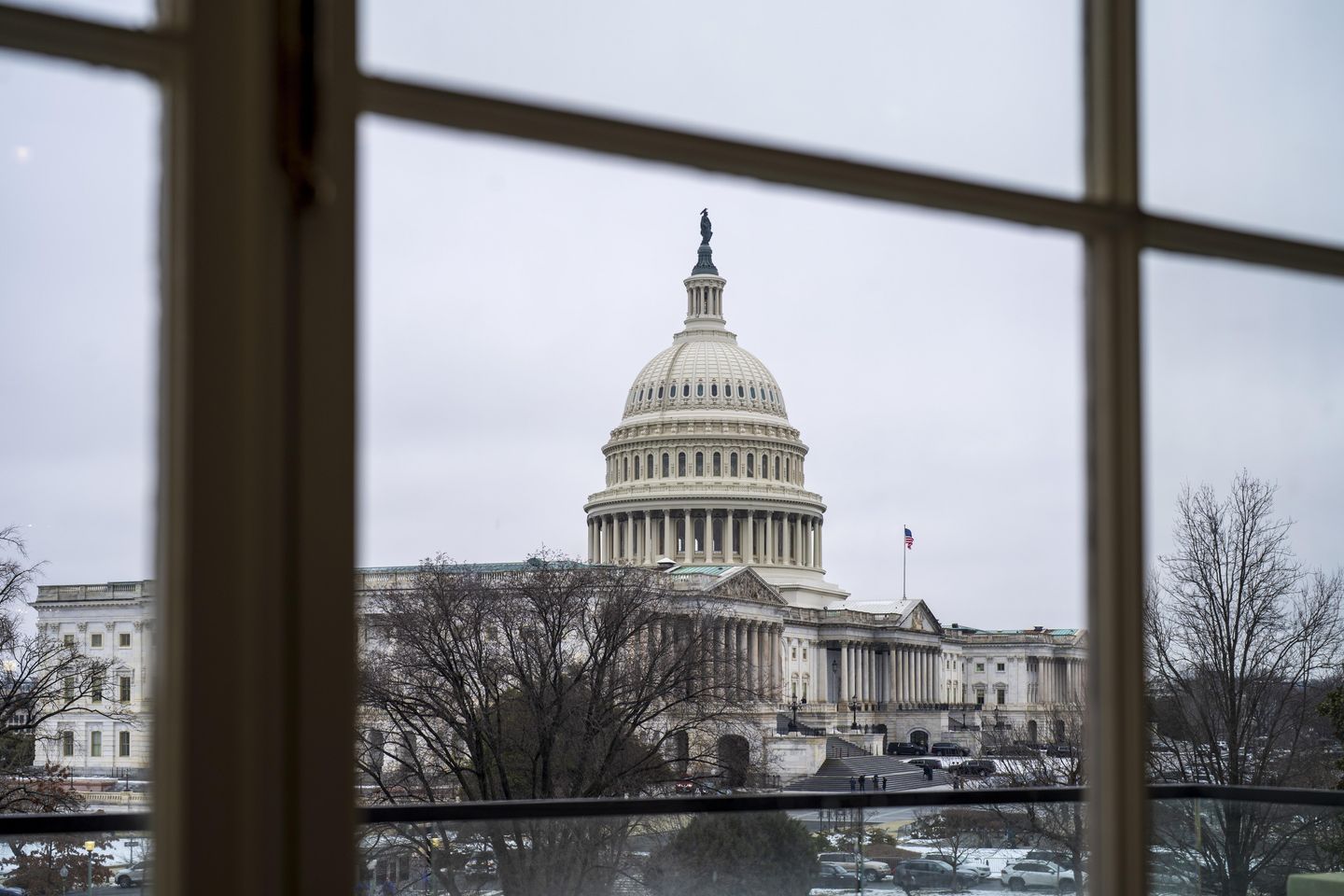
The chair of the House Ways and Means Committee on Sunday refused to rule out allowing tax rates to increase on wealthy Americans to help offset the costs of tax cuts for the working class and senior citizens in President Trump’s reconciliation package.
Rep. Jason Smith, Missouri Republican, said the House GOP wants to shield all Americans from the tax increases that are set to kick in if the Trump tax cuts of 2017 expire, but he suggested there is some wiggle room, including “loopholes” for top earners.
“Our focus is to provide tax relief for all Americans, but our priority is to deliver for working families, small businesses and farmers,” Mr. Smith said on “Fox News Sunday.” “As we go through this process, we have to have a fair balance and we have to thread a needle, but our priority as a Republican Party is the working families, small businesses, and farmers, and that is what this tax bill will provide for.”
Mr. Smith also said the House GOP has “no problem” eliminating tax “loopholes that the wealthy have benefited from” if that helps President Trump fulfill his campaign vow to stop taxing restaurant tips, overtime pay, or Social Security benefits.
“Those are our priorities and that is what this tax bill is going to deliver,” he said.
According to news reports, Senate Republicans have also mulled over whether to allow the tax breaks for top earners in the 2017 Trump tax package to expire as they look for ways to pay for Mr. Trump’s “big, beautiful” reconciliation bill.
Democrats have sounded the alarm.
“They want to end Medicaid as we know it,” House Minority Leader Hakeem Jeffries of New York said on Capitol Hill last week. “They are going to hurt children, hurt families, hurt seniors, hurt people with disabilities, close hospitals, shut down nursing homes and people will die.”
The tax-writing Ways and Means Committee is trying to ease the concerns of lawmakers from blue states who want to increase the $10,000 cap on the federal tax deduction for state and local taxes.
The House Energy and Commerce Committee has been investigating possible Medicaid savings that do not impact individual beneficiaries, including potential cost savings from scaling back Obamacare expansion spending.
They are expected to share the details of their plan over the coming days.
On Sunday, Mr. Smith and Rep. Jodey Arrington, Texas Republican and chair of the House Budget Committee, said that could include establishing work requirements for able-bodied Medicaid recipients.
“We can save over $1.5 trillion without touching a dime of the benefit funding,” Mr. Arrington said on “Fox News Sunday.” “The question is, will we be susceptible to the fearmongering and the false rhetoric that you just heard from the democratic minority leader in the House?”
“This is the same tired play they run, and unfortunately, Republicans haven’t collectively leaned in and just done the right thing,” he said. “We will be rewarded because we are doing this for the sustainability of these programs for the most vulnerable as well as being fiduciaries for tax dollars.”
“This moment will not happen in my political lifetime again,” Mr. Arrington said.












